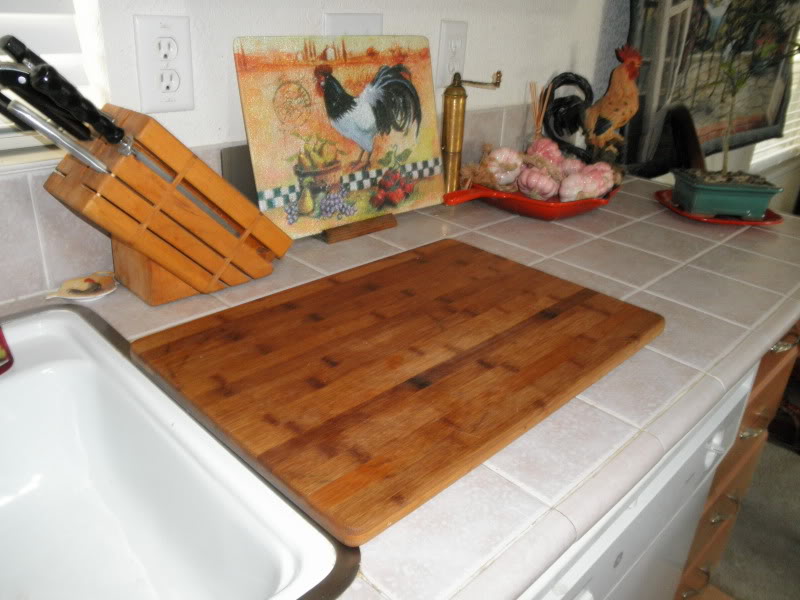I decided to purchase the "Little Kahuna" bamboo cutting board from Amazon. It costed $90. I considered the "Big Kahuna," but I know for a fact I don't have space for it.
Anyway, I liked this particular model, because it was around 3" in thickness. Thick cutting boards really give you that gourmet/luxurious feel, so that's why I decided to invest in it.
That said, I'm starting to wonder if I bit off more than I can chew. First off, the thing weighs a ton. I'm not exactly sure how I'm supposed to maneuver this thing around a home kitchen sink...
Second, maintenance. This is like the cast iron skillet of cutting boards. It requires constant seasoning, to prevent cracking and warping.
Do the benefits outweigh the cost and maintenance? What do you guys think?
So far, to my understanding, the benefits of wooden cutting boards over plastic, is that you get better knife control and it's pretty to look at.
The knock on these thick wooden cutting boards on the other hand, is the cost, the heavy weight, the cost and time factored into general maintenance.
What do you guys think?
Anyway, I liked this particular model, because it was around 3" in thickness. Thick cutting boards really give you that gourmet/luxurious feel, so that's why I decided to invest in it.
That said, I'm starting to wonder if I bit off more than I can chew. First off, the thing weighs a ton. I'm not exactly sure how I'm supposed to maneuver this thing around a home kitchen sink...
Second, maintenance. This is like the cast iron skillet of cutting boards. It requires constant seasoning, to prevent cracking and warping.
Do the benefits outweigh the cost and maintenance? What do you guys think?
So far, to my understanding, the benefits of wooden cutting boards over plastic, is that you get better knife control and it's pretty to look at.
The knock on these thick wooden cutting boards on the other hand, is the cost, the heavy weight, the cost and time factored into general maintenance.
What do you guys think?

